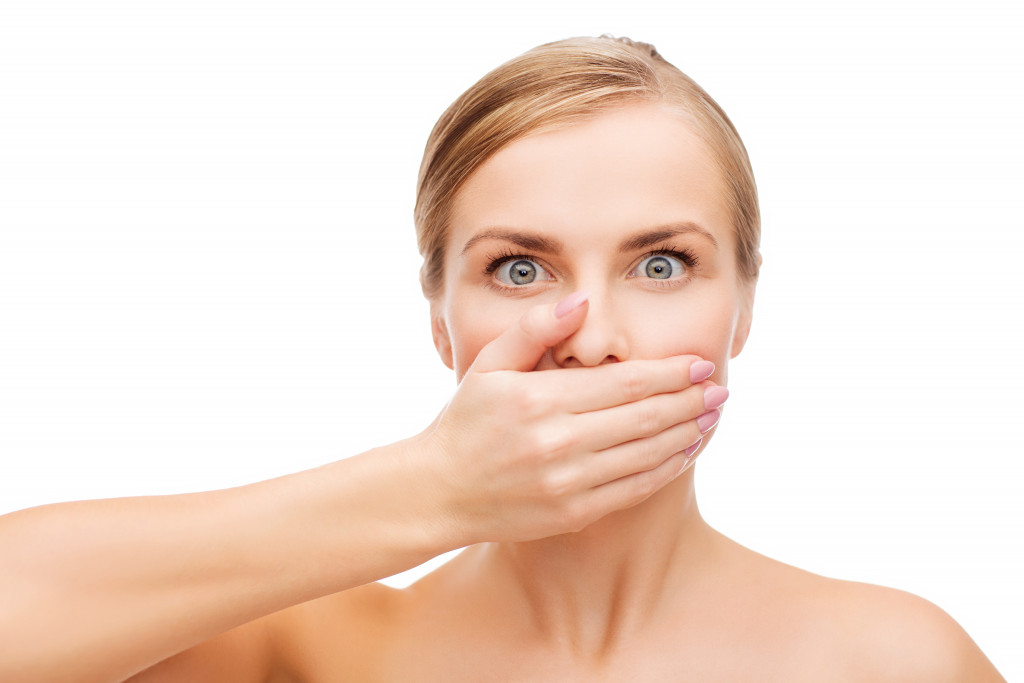- Halitosis is a common condition that affects an estimated 10 percent of adults in the U.S.
- Poor oral hygiene and impacted wisdom teeth are common causes of bad breath.
- Dry mouth, diet, smoking, and tobacco can also cause halitosis.
- Symptoms include a foul odor from the mouth and a metallic or sour taste in the mouth.
- Treatments include using mouthwash, chewing sugar-free gum, improving oral hygiene, and seeking advice from a medical professional.
Halitosis is a condition that affects millions of people around the world. In fact, according to the National Institute of Dental and Craniofacial Research, it affects an estimated 10 percent of adults in the U.S.
It is commonly known as bad breath and can be caused by various factors. Bad breath can be a source of embarrassment and can impact your personal and professional life. This blog post will discuss the causes, symptoms, treatments, and prevention of halitosis.
Causes of Halitosis
There are several potential causes of halitosis, including poor oral hygiene, food particles stuck in the mouth, and dry mouth. Here’s a brief overview of each:
Impacted Wisdom Teeth
When a wisdom tooth fails to break through the gum line, it can become impacted. This can cause chronic bad breath because of food and bacteria trapped in these pockets. Sometimes, the only way to get rid of this bad breath is to have wisdom teeth removal surgery.
Removing these teeth can help prevent future dental problems and relieve current discomfort. Your dentist or oral surgeon will provide instructions on preparing for the surgery and what to expect during recovery.
Dry Mouth
When the mouth is dry, it becomes an ideal environment for bacteria to thrive. Saliva helps to flush out food particles and bacteria from the mouth. When there is a decrease in saliva production, it can lead to dry mouth, which can cause bad breath. Dry mouth can also be caused by certain medications such as antihistamines and diuretics.
Diet
Certain foods and drinks can cause bad breath. Foods such as garlic, onions, and spices contain compounds that get absorbed into the bloodstream and are carried to the lungs, where they are emitted through the breath. Poor dietary choices, such as sugary and processed foods, can also contribute to bad breath, as these foods create an environment where bacteria can flourish.
Smoking and Tobacco

Smoking or chewing tobacco products can cause bad breath. They dry out the mouth, leading to a decrease in saliva production, and also leave an unpleasant odor behind. The only way to eliminate this bad breath is to quit smoking or chewing tobacco and maintain good oral hygiene.
Symptoms
The most common symptom is a foul odor from the mouth that cannot be cured with brushing or mints. Additionally, some people may experience a metallic or sour taste in their mouth.
Along with these physical symptoms, halitosis can also cause emotional distress, leading to feelings of shame and embarrassment. If you are experiencing these symptoms, it is essential to seek the advice of a dentist or medical professional who can help diagnose and treat the underlying cause.
Treatments
Fortunately, there are treatments available to help freshen your breath. One common solution is mouthwash, which can kill bacteria that cause bad breath. Chewing sugar-free gum or sucking on breath mints can provide a temporary solution. Another option is to improve your oral hygiene, such as brushing and flossing regularly.
However, in some cases, bad breath can be a sign of a more serious underlying health condition, so it may be wise to seek advice from a medical professional if the problem persists. Finding a treatment that works for you can make all the difference in your everyday interactions.
Prevention Tips

Preventing bad breath starts with practicing good oral hygiene. This includes brushing your teeth twice daily, flossing at least once daily, and using mouthwash regularly. Additionally, it is important to limit sugary and processed foods in your diet and cut down on smoking or chewing tobacco products.
Also, stay hydrated by drinking plenty of water throughout the day. Drinking water helps to flush out food particles and bacteria from your mouth, thus providing some relief from bad breath.
Final Thoughts
Halitosis is a common condition that a variety of factors can cause. The most common cause of bad breath is poor oral hygiene. It is important to brush and floss regularly and visit the dentist for cleanings to prevent the buildup of bacteria in the mouth.
Using a tongue scraper, saliva substitutes, and mouthwash can also help to treat halitosis. To prevent bad breath, avoiding certain foods and drinks and staying hydrated is important. Quitting smoking or tobacco products can also improve oral health and prevent bad breath. Following these simple prevention and treatment tips can keep your breath smelling fresh and clean.

